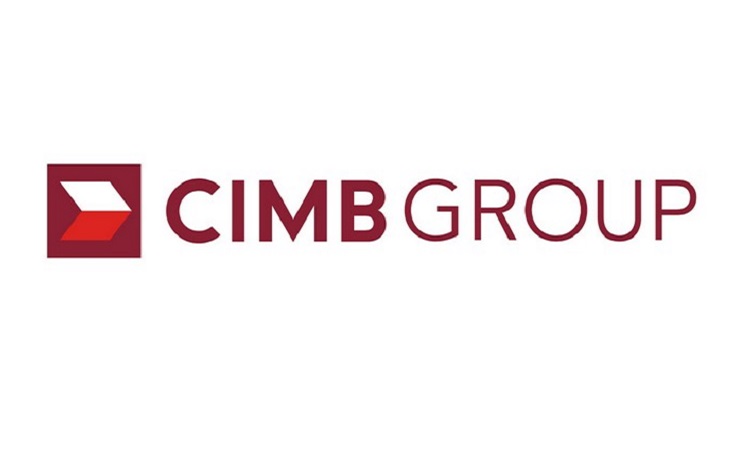CIMB Group reported a Profit Before Tax (“PBT”) of RM714 million for the first quarter of 2020 (“1Q20”). The weaker PBT was attributed to lower non-interest income (“NOII”) and higher provisions across selected markets. Net interest income (NII) grew by 4.8%, underpinned by steady 3.8% loan growth and operating expenses remained under control. The Group’s 1Q20 net profit stood at RM508 million, translating to a net Earnings Per Share (“EPS”) of 5.1 sen and an annualised Return On average Equity (“ROE”) of 3.7%.
CIMB Group said, “We are pleased with the continued robust performance of our underlying business. Loan growth stayed healthy across all markets and our CASA ratio improved significantly to 36.5%. Profitability was however, impacted by volatile trading conditions, lower FX income and isolated credits which gave rise to increased provisioning in selected markets.
With the on-going crisis, CIMB has incorporated the necessary additional measures to quickly adapt to the pandemic and ensure resilience against an uncertain business environment. This includes prioritising staff safety with new working arrangements, working closely with our customers to safeguard asset quality and increasing the intensity of our cost management initiatives,” CIMB Group commented.
The Group’s 1Q20 operating income remained steady at RM4.14 billion. NII expanded by 4.8% YoY with a marginally lower Net Interest Margin (“NIM”) of 2.44% (cf. 2.48% in 1Q19), with spread compression across all operating countries.
However, the Group’s NOII declined by 15.5% YoY largely due to weaker trading and FX income from markets adversely impacted by COVID-19 at the tail-end of 1Q20. Operating expenses remained firmly under control, increasing by just 0.7% YoY, while the higher Cost-to-Income Ratio (“CIR”) of 56.0% (cf. 55.3% in 1Q19) was due to the weaker income during the quarter.
The Group’s total gross loans was up by 3.8% YoY, with commendable growth across all core markets. Total deposits were 3.9% higher YoY, mainly contributed by strong performance in Singapore (+17.7%) and Thailand (+13.4%). In tandem, the Group’s CASA ratio strengthened to 36.5%. The Loan to Deposit Ratio (“LDR”) stood at 91.2% (cf. 91.4% at Mar-19), reflecting sustained strong liquidity. The Group’s gross impairment ratio stood at 3.4% as at end-March 2020, with an allowance coverage of 75.9%.
The Group’s Consumer Banking PBT was 8.5% lower at RM528 million, despite a strong 8.1% expansion in operating income, buoyed by growth in both NII and NOII, with cost growing just 1.2%, but offset by higher YoY provisions.
Group Commercial Banking performed well operationally, with a 4.0% growth in operating income and a 0.7% YoY decline in operating expenses. Nevertheless, its PBT was impacted by increased provisions. PBT at the Group’s Wholesale Banking division fell by 84.7% YoY to RM74 million. This was attributed to significantly weaker capital markets in March bringing about a 64.8% YoY decline in NOII, which was partially offset by a 10.2% NII growth.
Group Ventures & Partnerships and Funding (“GVPF”) PBT was 15.5% lower YoY due to higher expenses from higher Forward23-related investments, despite a 121.4% NOII expansion from the Group’s fixed income portfolio.
CIMB Islamic’s 1Q20 PBT rose by 3.1% YoY to RM256 million, driven by a strong 19.7% growth in operating income. CIMB Islamic’s gross financing assets rose by 8.0% YoY to RM79.9 billion, accounting for 22.0% of the Group’s total gross loans. Total deposits (including investment accounts) increased by 8.5% YoY to RM88.8 billion.
Malaysia PBT fell by 33.4% YoY from weaker trading and FX income, higher provisions from Consumer Banking and lower NII from the two OPR cuts in 1Q20. Non-Malaysia PBT contribution to the Group stood at 24% in 1Q20 compared to 44% in 1Q19, largely due to higher provisions.
CIMB Group added, “The first quarter was a challenging one and we foresee continued challenges for the rest of the year. Despite this, we are confident that the banking system is far more resilient today, given the lessons learnt from previous crises, and the reforms put in place as a result. This includes a better capitalised banking sector with sufficient buffers to be able to withstand the negative shocks of COVID-19.
Extraordinary times demand extraordinary measures and as a good corporate citizen, we are focussed on easing the financial burdens of our customers and communities. We continue to work with the government and regulators to ensure financial support is provided to customers during this crucial period.
At the same time, we are accelerating certain plans, which include digital initiatives and processes, to provide a more seamless and convenient banking environment for customers in the new normal going forward.
We remain committed to providing returns to our stakeholders and are confident that these measures, alongside CIMB’s well-established franchise and strong CET1 capital base of 12.5%, will ensure the Group’s agility and ultimately, its long-term resilience in the face of the crisis,” concluded CIMB Group.




